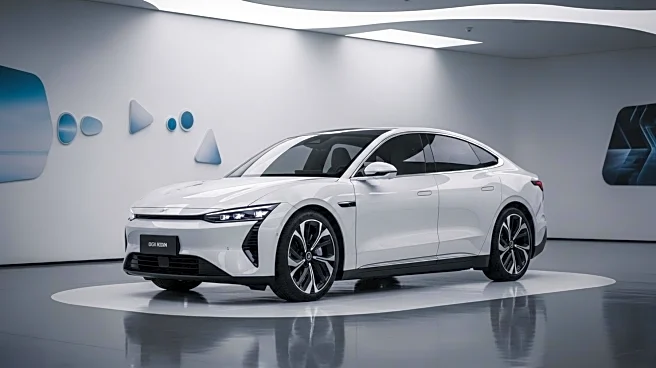What's Happening?
China's car sales are anticipated to stagnate in September as trade-in subsidies come to an end. The automotive industry is facing a changed landscape with the expiration of the $7,500 tax credit, which had previously boosted sales for electric vehicles. Ford CEO Jim Farley has expressed concerns that electric vehicle sales could drop by half without these federal incentives. Despite this, some dealers are optimistic about the performance of electric vehicles without government support, while others brace for potential declines.
Why It's Important?
The stagnation in China's car sales reflects broader challenges in the global automotive industry, particularly in the electric vehicle sector. The removal of trade-in subsidies and tax credits could lead to decreased consumer interest, impacting manufacturers like Ford, GM, and Hyundai. This situation highlights the dependency of the electric vehicle market on government incentives, which are crucial for driving sales and supporting the transition to sustainable transportation. The industry's response to these changes will be pivotal in shaping future market dynamics.
What's Next?
As the automotive industry adjusts to the absence of subsidies, manufacturers may need to innovate and reduce costs to maintain competitiveness. The potential decline in sales could prompt calls for new government incentives to support the electric vehicle market. Industry leaders and policymakers will likely engage in discussions to address these challenges and explore alternative strategies to sustain growth. The performance of electric vehicles in this new environment will be closely monitored as a key indicator of the industry's resilience.











